China uses TikTok to dumb Americans down: Mike Rogers.
Former FBI special agent Mike Rogers and former Pennsylvania congressman Patrick Murphy give their take on Congress banning TikTok from federal devices, on 'America Reports.'
Bipartisan lawmakers want to ban TikTok. That’s not likely to happen any time soon.
Just consider what unfolded on the Senate floor the other day when Sen. Josh Hawley, R-Mo., asked the Senate to agree – by unanimous consent – to prohibit TikTok. Sen Rand Paul, R-Ky., objected.
That was the end of one major attempt to ban the app, but what's past is prologue.
It may be instructive to dive deeply into how Congress faced pressure to ban or severely limit another controversial product decades ago: cigarettes.
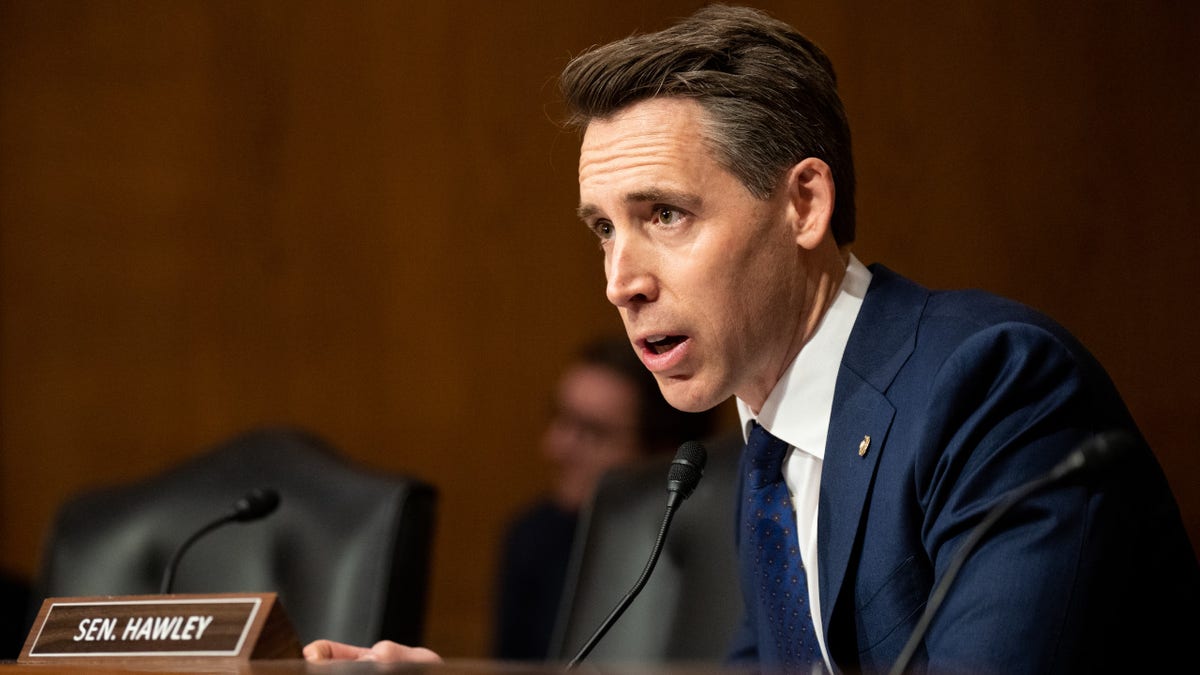
Sen. Josh Hawley, R-Mo., grills Colleen Shogan, nominee to be Archivist of the United States, about her Twitter feed during her confirmation hearing in the Senate Homeland Security and Governmental Affairs Committee in Washington on Tuesday, February 28, 2023. (Bill Clark/CQ-Roll Call, Inc via Getty Images). (Bill Clark)
You couldn’t have watched the news on TV in the late 1940s and 1950s without first hearing about cigarettes.
Cigarette advertisements haven’t aired on TV in decades, but NBC’s first TV news program was called "The Camel News Caravan," hosted by John Cameron Swayze. R.J. Reynolds Tobacco sponsored the program — in color. Swayze was often seen at the anchor desk, taking a few drags in between stories about President Eisenhower and the Korean War. In the late 1950s, R.J Reynolds reduced its sponsorship, and Plymouth automobiles took over as the advertiser. It wasn’t long until TV legend David Brinkley succeeded Swayze.
That was the advent of television news.
In 1964, Surgeon General Luther Terry released a report about cancer and bronchial dangers caused by smoking. That prompted Congress to require warnings about the dangers of cigarettes. By 1969, Congress approved The Public Health Cigarette Smoking Act, which led to the iconic, rectangular block on all cigarette ads in magazines or on packaging: "Warning: The Surgeon General Has Determined that Cigarette Smoking is Dangerous to Your Health." That also led to the eventual ban on cigarette ads on TV and radio.
More on that in a moment.
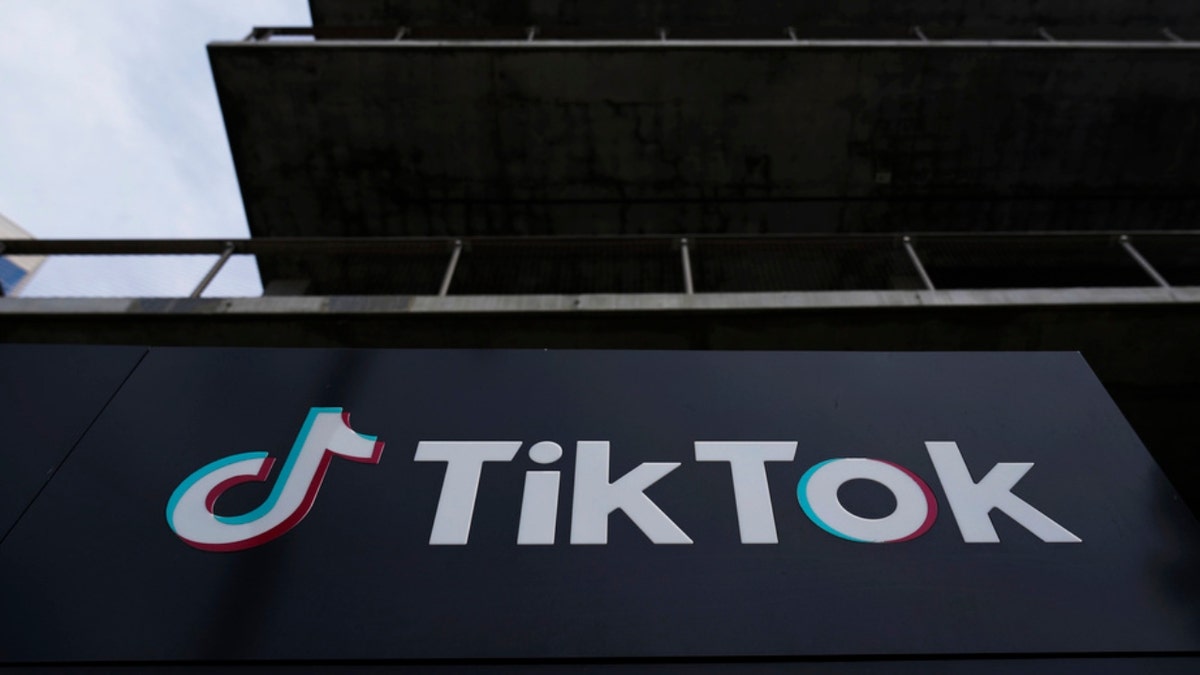
The TikTok Inc. building is seen in Culver City, Calif., on March 17, 2023. TikTok on Tuesday, March 21, 2023, rolled out updated rules and standards for content and users as it faces increasing pressure from Western authorities over concerns that material on the popular Chinese-owned video-sharing app could be used to push false information. (Damian Dovarganes)
Congress decided to act to protect the public from the harmful effects of cigarettes, but lawmakers didn’t have enough votes to banish tobacco products. Moreover, they didn’t want to. They viewed it as too aggressive for Congress to prohibit one particular product. Libertarian viewpoints prevailed. It was one thing to help curb smoking through jarring, government-mandated warnings. It was another to let people do what they want, so long as the government forewarned them of the consequences.
But there was another consideration at hand. Tobacco had a constituency on Capitol Hill. Tobacco raised in Kentucky and North Carolina meant jobs and drove an economic engine. Plus, there was a way to levy taxes on tobacco products. So, the tobacco industry grudgingly accepted regulation from Congress. And people still had access to, and used, tobacco products. Cigarettes may be subject to some regulation, but Congress didn’t ban them. The tobacco industry viewed that as a win.
Fast-forward to 1997.
KEVIN O'LEARY CALLS OUT ‘PROPAGANDA’ FROM AOC ON TIKTOK
Major tobacco companies and 46 states, along with the District of Columbia, agreed to what was termed "the tobacco settlement" after states sued cigarette manufacturers in what emerged as the largest civil settlement in American history. In response to lawsuits, tobacco companies would compensate states for covering the expenses of tobacco-related illnesses. They would also agree to additional curbs on marketing tobacco products to kids.
Also in the 1990s, the U.S. Department of Justice reached an agreement with the tobacco industry about billboards promoting cigarettes in sports stadiums. The issue was not just that fans attending a game in person may see the ads. Many of those advertisements were strategically placed around stadiums so TV cameras covering the game would pick them up, beaming them into the living rooms of people watching at home.
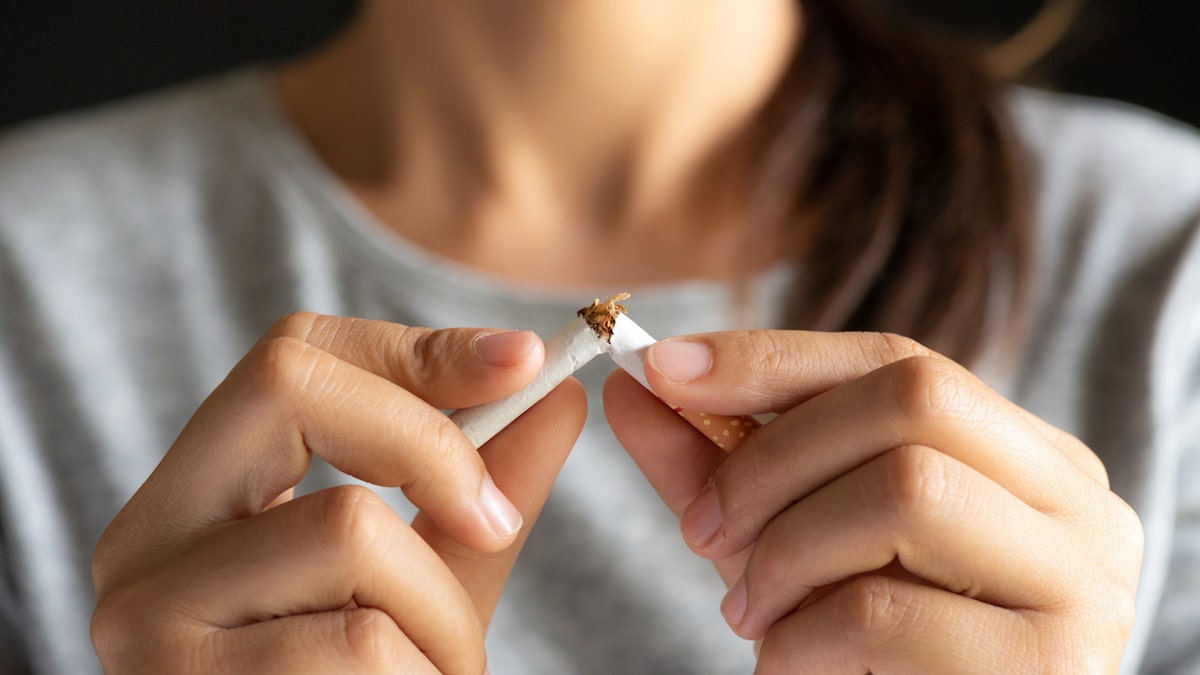
A woman destroying a cigarette. (iStock)
A gigantic Marlboro sign stood ironically behind one end zone at Candlestick Park, former home of the San Francisco 49ers. A Marlboro sign also loomed over the center field walls of Yankee Stadium and Shea Stadium in New York. The same with the Superdome in New Orleans and the old Tiger Stadium in Detroit. A total of 14 NFL stadiums, 14 Major League Baseball parks and five basketball arenas featured ads for tobacco products.
Anti-tobacco activists believed that cigarette companies were "sneaky." They bought up signage in sports arenas and muscled free advertising onto the air in the middle of sporting events, even though conventional TV advertising for smokes wasn’t permitted.
Cigarette ads peppered the airwaves in the mid 1960s. Attorney and current George Washington University law professor John Banzhaf cited the Federal Communications Commission’s "Fairness Doctrine" when asking WCBS-TV in New York for "equal time" to oppose cigarettes. Banzhaf argued that if tobacco firms could broadcast pro-cigarette messages, he should have the chance for a rebuttal. The FCC decided that was fair. Banzhaf wanted a rebuttal for every smoking ad aired. The FCC said Banzhaf could offer one anti-smoking message for every four tobacco commercials. But tobacco companies quit advertising completely. Congress approved legislation to ban TV ads for smoking. The final cigarette commercial appeared in early 1971.
RAND PAUL SMACKS DOWN DISPARTISAN TIKTOK BAN BILLS: ‘GOES AGAINST THE FIRST AMENDMENT’
This background may prove instructive when examining the current debate about TikTok.
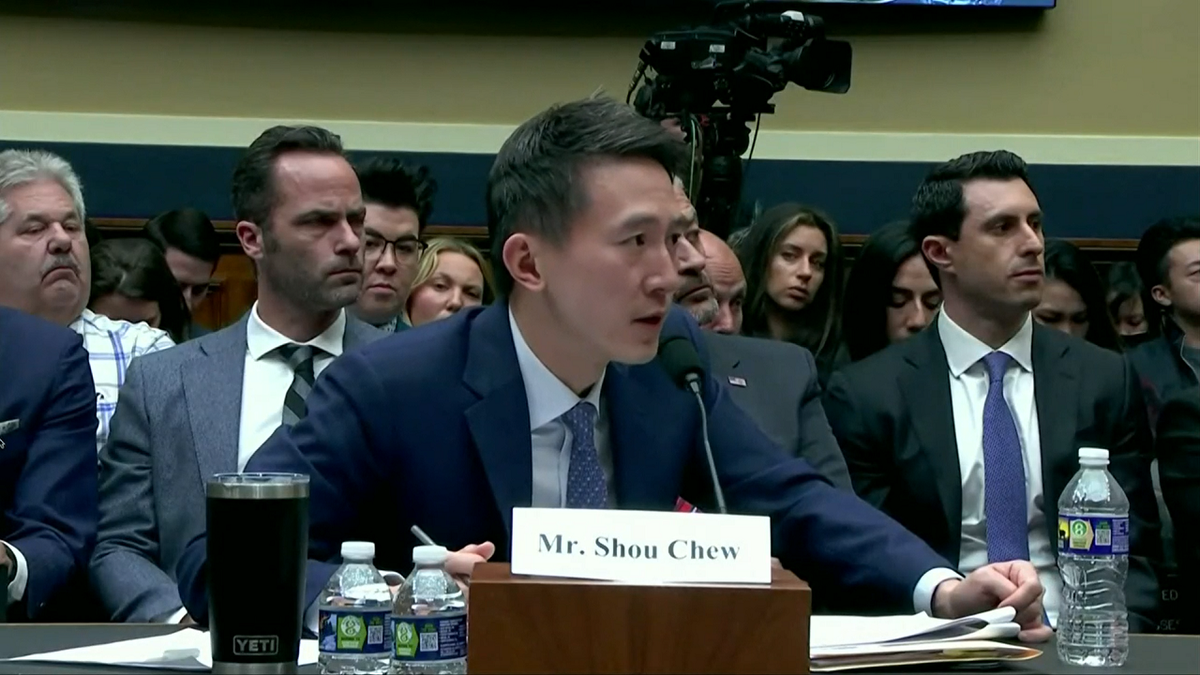
TikTok CEO Shou Zi Chew testified before a congressional panel on Thursday regarding security concerns surrounding the Chinese-owned app. (Fox News )
It may be a struggle to forge a coalition on Capitol Hill that is willing to vote for an outright ban of TikTok. Yes, there are national security concerns, but a number of lawmakers have expressed concern about banning a product. There are free speech issues. A staggering 152 million Americans use TikTok on their phones. So, the product is popular. So were cigarettes. Lawmakers are loath to go against their constituents. A number of Democrats and Republicans increasingly say they believe TikTok is a means to engage younger voters. A vote to trash TikTok could harm lawmakers if Gen Z voters believe Congress disses their favorite app.
A PBS NewsHour, NPR and Marist poll found that 57 percent of all Americans support banning TikTok. Eight in ten Republicans believe TikTok poses a threat. Seven in ten Democrats.
So, what could be the way forward with TikTok?
Like cigarettes, some lawmakers believe that TikTok is toxic to the "health" of Americans and the United States. But there’s worry about censorship.
As we often say in this space, it’s all about the math.
The math doesn’t work in Congress to ban TikTok.
WHY TIKTOK IS SO HARD TO BAN IN THE US, ACCORDING TO EXPERTS
But the math could work for other measures to regulate TikTok. Warn consumers about TikTok. It’s possible there could even be litigation about TikTok.
Sound familiar?
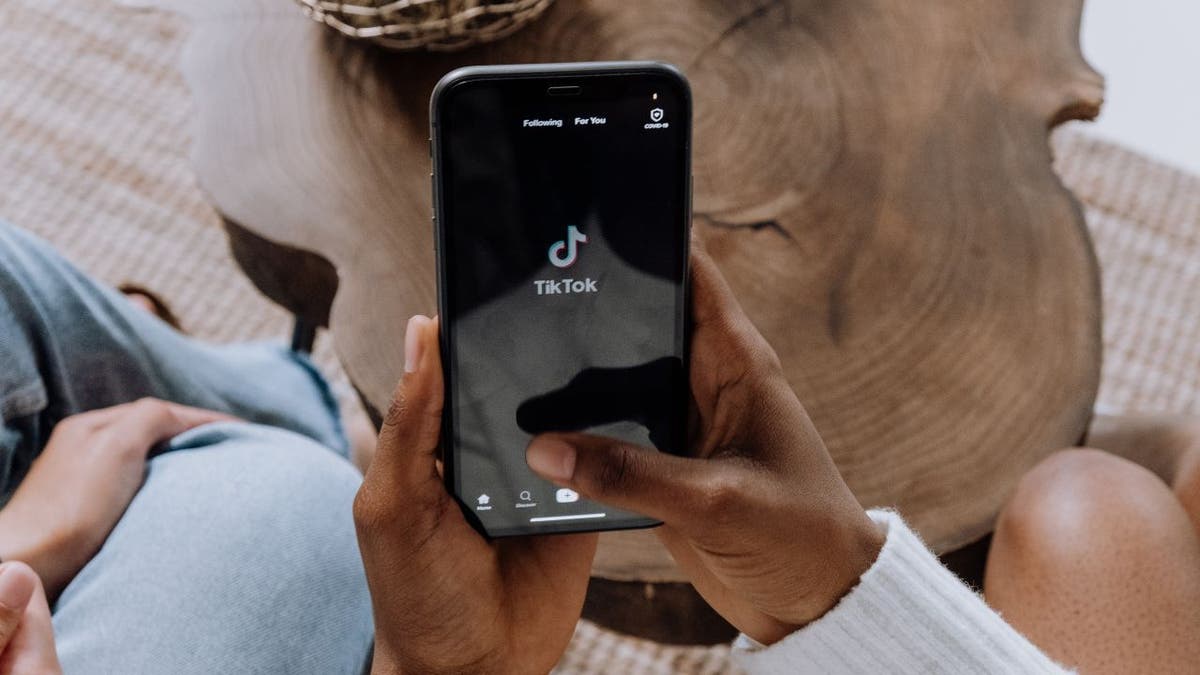
A person using TikTok, unaware of how it tracks them. (CyberGuy.com)
The history of cigarettes and legislation might give us a window into the road ahead for TikTok.
It took a few years for Congress to pass legislation about tobacco products in the 1960s after the initial Surgeon General warning. Then there was the Banzhaf request for "equal time." Then legislation to bar ads for cigarettes on TV. Finally, the tobacco settlement in the late 1990s.
It’s far from clear what path Congress may eventually pursue with TikTok. But settle in. TikTok legislation may take a few years.
CLICK HERE TO GET THE FOX NEWS APP
But an outright ban of TikTok?
Doubtful. That’s because the math simply doesn’t work for an outright ban.















































